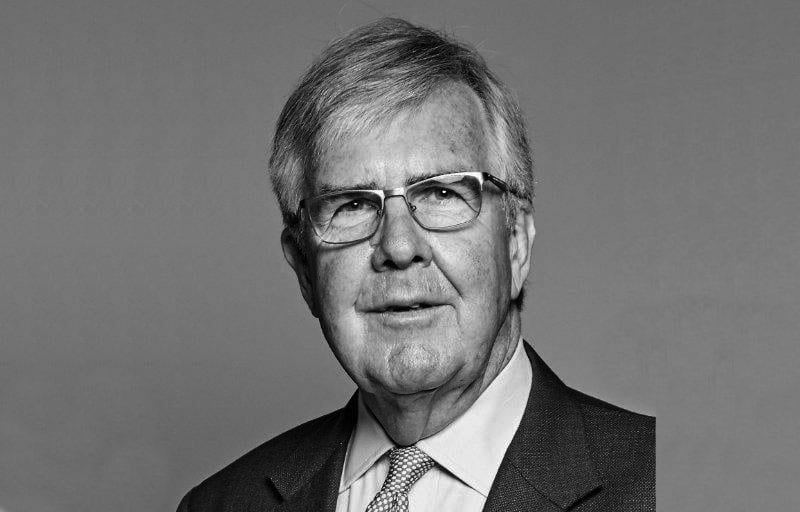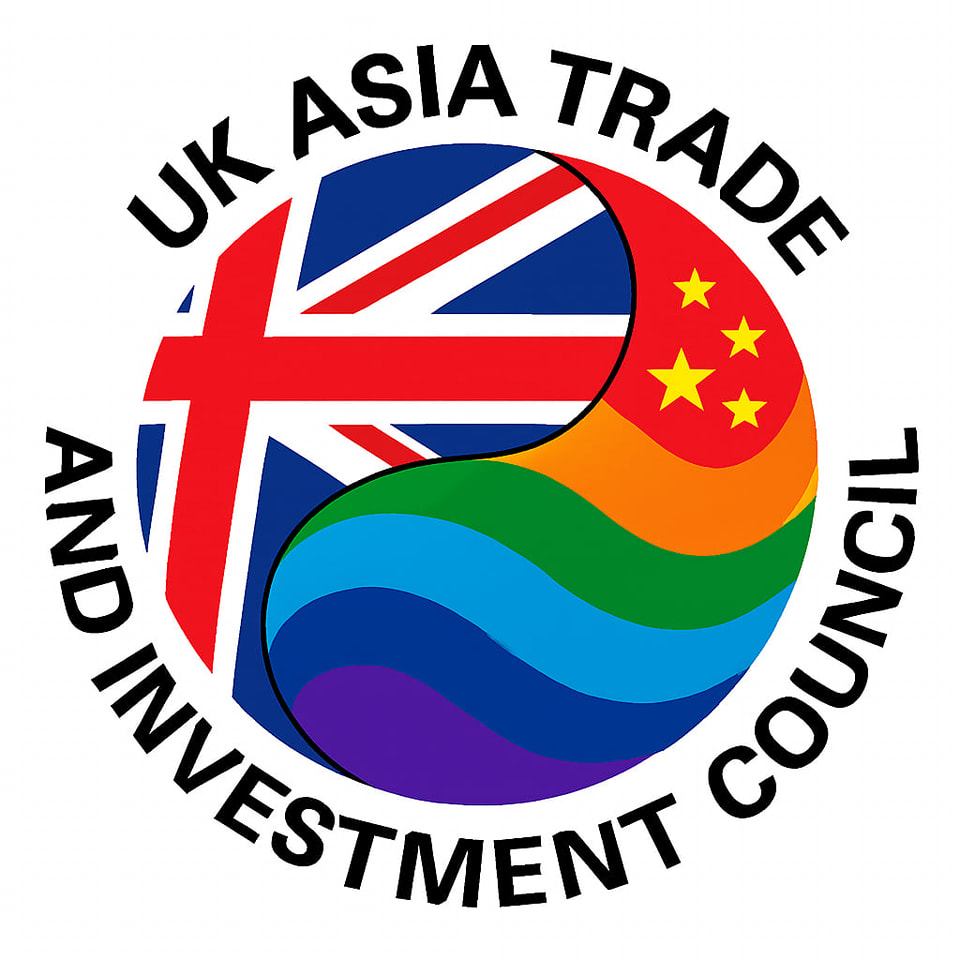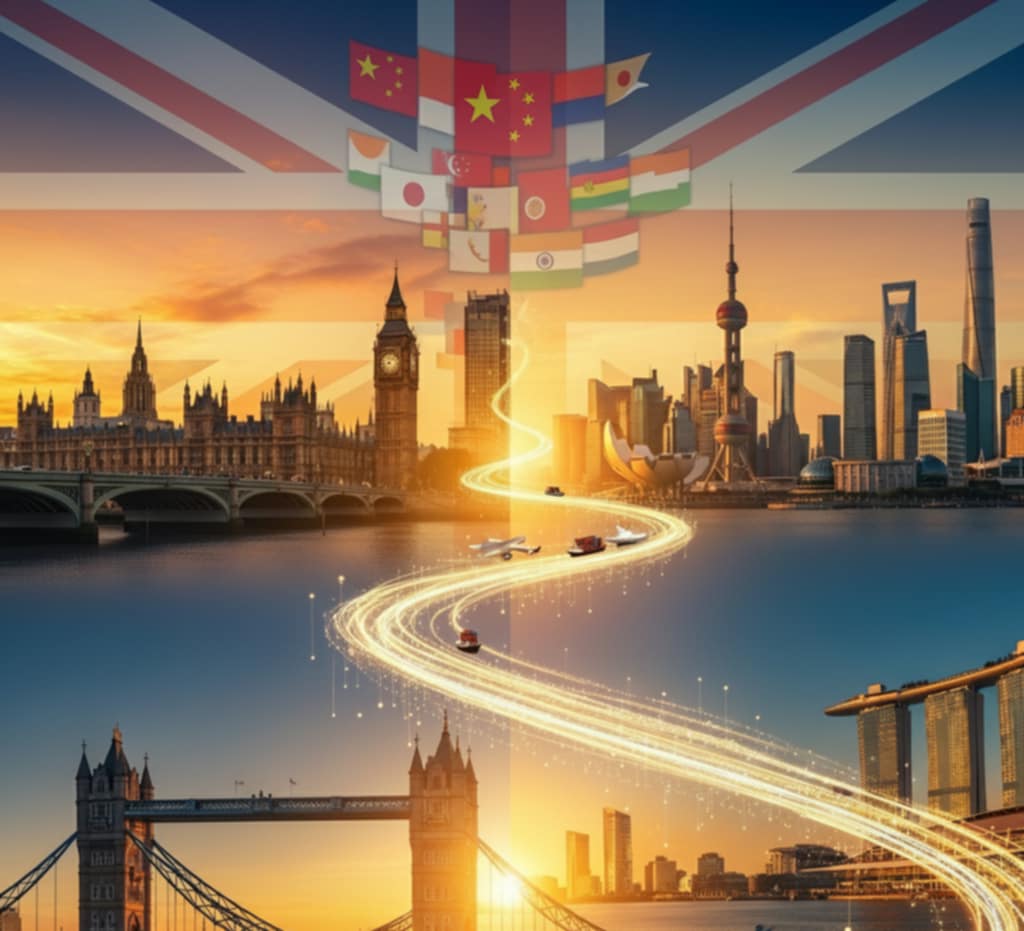LONDON: In a landmark move poised to reshape global commerce, an ambitious strategic partnership agreement has been signed between the International Trade Council (ITC) and UK Asia Trade & Investment Council (UKATIC), heralding a new era of private sector cooperation aimed at accelerating trade, investment and business between the UK, Asia and international markets.
The agreement was signed by Dr Mohammad Hotak, Founder and Chairperson of UK Asia Trade & Investment Council (UKATIC) and Ranjani Rangan, Chairperson of International Trade Council (ITC) on the anniversary of UKATIC’s “Buy From Britain” campaign in London, marking a pivotal moment in multilateral business diplomacy and private sector leadership.
An Ideal Alliance for Greater Trade
The agreement brings together two influential bodies with networks across rapidly growing economies, membership of businesses from diverse industries and expertise in international trade rules from across the United Kingdom, Asia and the world to create a more integrated regional and global business environment for economic cooperation, trade and investment.
“This partnership is more than symbolic. It’s a blueprint for inclusive, resilient and forward-looking global commerce,” said UKATIC Chairman Dr Mohammad Hotak “By aligning our networks and resources, we’re empowering businesses to thrive in a rapidly changing world.”

He added “Britain has a unique advantage and we can build on our historical relations with Asia and get more trade, investment and business done. It is a great pleasure to partner up with the International Trade Council, the work they are doing globally is inspiring and to work together in creating more opportunities for our people, members and stakeholders.”
Ranjni Rangan, Chairperson of the International Trade Council, said:

“This agreement is more than just ink on paper. It symbolises the strengthening of bonds between East and West, a bridge built on trust, cooperation, and a shared vision of prosperity. Global trade is not a zero-sum game; it is a force for peace, growth, and mutual understanding. So by working together, we would definitely want to ensure that businesses and communities on both sides benefit from open markets and shared opportunities.”
Present at the strategic partnership signing ceremony, Viscount Lord John-Desmond Waverley, Former Member of the UK House of Lords and Board Member of The International Centre for Trade Transparency & Monitoring remarked “We could well do with strengthening the chamber movement in the UK and particularly in relation to building relationships with chambers and business councils around the world.”

He added “It’s only the private sector who can deliver. On the other hand, it is the exclusive or the principal role of the government to create the right environment to allow the private sector to thrive.”
Important Takeaways
The strategic partnership will concentrate on several critical areas, beginning with equipping businesses with digital tools and resources such as Global Tariffs Tools and ADAMftd to access data-driven insights and make informed decisions. Both councils recognise that data-driven business is the future of global commerce.
Another socially responsible aspect of the partnership is to collaborate on Trade for Good. The trade councils will work to promote and facilitate trade with countries affected by conflict and poverty, where trade is used to create jobs, empower communities and build economies.
The partnership also has a strong focus on empowering SMEs. Small and medium-sized businesses are the backbone of many economies but they often face significant hurdles when attempting to enter international markets.
The new alliance aims to provide these businesses with the tools they need to succeed, including access to networking events, market intelligence and training programs. By fostering a more inclusive international trade ecosystem, the agreement hopes to create new opportunities for smaller firms to innovate and grow.
The agreement comes at a time when Middle East is rapidly diversifying while South Asia, Southeast Asia and Central Asia are emerging as some of the fastest-growing economic regions.
The UK is keen to deepen ties post-Brexit, especially as it strengthens its Asia tilt. British Foreign Secretary David Lammy emphasised the importance of trade openness in his keynote speech: “Growth requires a new partnership between government and business from SMEs to multinationals.”
This agreement is a testament to UK Asia Trade & Investment Council’s commitment to rebuilding Britain’s economic foundations through global collaboration”.
Future Outlook
The International Trade Council’s involvement ensures that the partnership will have global reach, connecting government agencies, chambers and businesses from across more than 170 countries.
Business analysts suggest the agreement could serve as a model for other regional blocs seeking deeper integration with the UK.
While the partnership’s full impact remains to be seen, the initial reaction from the business community has been overwhelmingly positive. The collaboration is viewed as a proactive and practical approach to addressing the challenges of a fragmented global economy.
By creating a unified voice, the International Trade Council and UK Asia Trade & Investment Council can effectively advocate for policies that support open markets and fair trade.
The partnership is poised to become a powerful force for positive change, shaping the future of international business and ensuring that trade and investment continue to be engines of growth and opportunity for all.
Whether you’re a startup in Manchester, a bank in Abu Dhabi, a mining company in Astana or a fintech firm in Singapore, this pact could open doors for you that were previously closed.

